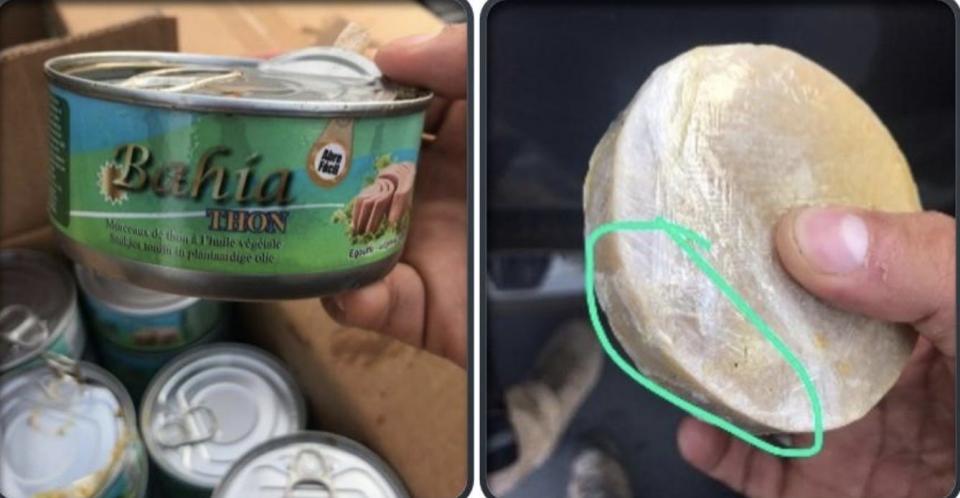The man who got the FBI's fake messaging app off the ground says pulling off one of the biggest police stings in history wasn't the only goal
- Oops!Something went wrong.Please try again later.
Authorities arrested hundreds of suspected criminals after tricking them into using an FBI-controlled chat app.
The former prosecutor who oversaw the operation told Insider the sting warned criminals that encrypted technology can't hide their wrongdoing.
He wouldn't expand on whether extremist groups that organize over encrypted apps should heed the warning, too.
The arrests of more than 800 suspected drug and gun traffickers last week in one of the biggest police stings in history wasn't the only goal of the FBI developing a fake encrypted chat app for criminals, according to the former prosecutor in charge of the operation.
The FBI partnered with law enforcement around the world to get 12,000 devices loaded with a fake encrypted messaging app into the hands of suspected criminals - and then read every word. Monitoring the FBI-controlled app, called ANOM, gave law enforcement an opportunity to learn the inner workings of transnational drug and firearms trafficking organizations.
Andrew Young, the former assistant US attorney who oversaw Operation Trojan Shield, told Insider a primary goal of the operation was to send a message to suspected criminals that encrypted technology will not protect them.
"Building the evidence on all these other people, and all the arrests and the seizures, and certainly the murders that were prevented was incredible," Young said. "But one of the main goals was actually sort of that public relations goal: to show that the FBI is willing and able to do something like this, and that there's no reason to think they aren't doing it now or again."
Young wouldn't expand on whether domestic extremist groups that organize over encrypted apps, like the Boogaloo Bois and Proud Boys, whose members have been tied to the January 6 insurrection, should interpret Operation Trojan Shield as a sign the FBI could be monitoring their communications.
"That's harder for me to say just because I'm not in their minds and I don't know what they think, or what they intend to do, or what they should do to be better at what they're trying to do," Young said.
"I think what they should take from this is that law enforcement is not just going to sit back and say, 'This isn't a solvable problem so we just can't do anything about it at all,'" he added. "There's creative people and innovative people within the government and within law enforcement who are trying to solve these problems, and they're going to continue to work at it regardless of whatever platform they have."

How one of the biggest police stings in history got its start
Young was the Justice Department's lead prosecutor on the ANOM case until August 2020, when he left to take a job at the law firm Barnes & Thornburg. He told Insider how what began as a investigation into a small-time gambling ring morphed into one of the biggest police stings in history.
"One of the best achievements of this entire operation was that it never got out," Young said, given that more than a dozen nations participated.
The case got its start when investigators looking into the organizer of a gambling ring in 2015 realized the man was actually making most of his illegal proceeds from drug trafficking, according to Young. The man kept the gambling and drug businesses siloed, and used an encrypted communications device to be especially secretive when it came to the trafficking, he said.
That led the Justice Department to set its sights on Phantom Secure, a company they believed was creating encrypted devices and marketing them toward criminal enterprises that used them to freely share details about their operations. In 2018, Vincent Ramos, the chief executive of Phantom Secure, pleaded guilty to leading a criminal enterprise that facilitated the transnational importation and distribution of narcotics. He was sentenced to nine years in prison.
At that time, Young's team considered using the Phantom Secure technology for wiretaps, but he said it fell through.
"Then we were at the stage where you can just shut everything down and move on to something entirely different, or think, 'Is there something left here to do?'" Young said. "That's around the time we were presented with a device and the opportunity to have a covert operation. That was the early, early stage of the idea."
After overcoming the logistical and bureaucratic obstacles to getting the operation off the ground both in the US and in Australia, Young's team learned through the FBI-controlled app how criminal enterprises communicate and ship illegal drugs internationally - often times by hiding it in shipments of food items, like hollowed-out pineapples or tuna cans.
Information gleaned from the app had led to the arrests of more than 800 people in Australia and across Europe as of last week, according to the FBI and Europol. In addition to the drugs, law enforcement also seized 55 luxury vehicles and more than $48 million in various currencies as part of the operation, Europol said in its release.
Read the original article on Business Insider

